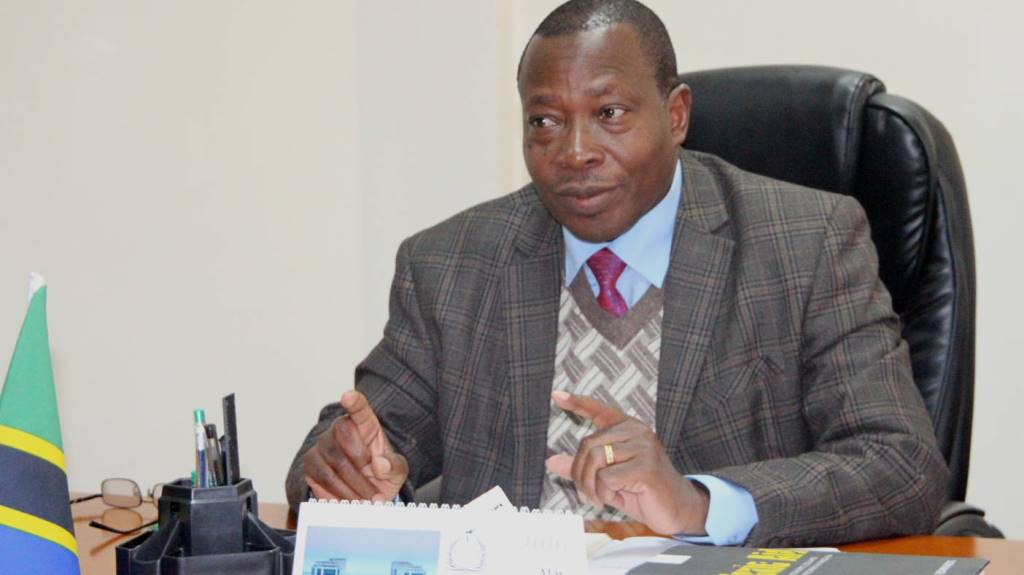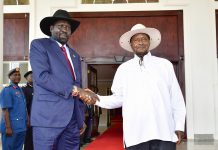AS Tanzania joins the rest of the world for New Year celebrations today, the only gift that the government can offer to all citizens is that the country’s economy remains stable—and this year, it is estimated that the figures will rise from the current 6.9per cent to 7.1per cent.
The Minister for Finance and Planning, Dr. Philip Mpango, said on Tuesday that during the first three years of President John Magufuli’s administration (2016-2018), the national economy grew by 6.9 percent.
According to him, in 2018, the economy grew by 7 percent, compared to 6.8 percent (2017) and 6.9 percent (2016).
“In 2018, Tanzania was leading in the Southern African Development Community (SADC) in economic growth, the second in the East African Community (EAC) and the fifth in Sub-Saharan Africa,’’ said the minister.
Dr Mpango was giving an assessment of the state of national economy for last year and the initial report on budget implementation of the first half of 2019/2020 Financial Year.
In his report, Dr Mpango said during the first half of 2019, the sector that grew steadily were works (16.5per cent), mining (13.7per cent), information and communications (10.7per cent), water (9.1per cent) as well as cargo transportation (9 per cent).
The minister further said the country also managed to control inflation, noting that as of November 2019, its rate stood at 3.8per cent compared to 3.0 per cent during the corresponding period in 2018.
However, he noted, the inflation rate was still lower compared to 8 per cent which is the highest rate set by EAC member states.
The assessment shows that the country’s shilling also remained strong against the US dollar, according to Dr Mpango.
The minister explained that between July and November 2019, the exchange rate for one US dollar stood at 2,291/- compared to 2,276/- during the corresponding period in 2018.
“This means, the shilling depreciation stood at 0.6per cent, and the stability of the country’s currency was because of proper supervision of the finance policy, income and expenditure control as well as control of inflation,’’ the minister further explained.
Commenting on the government debt, Dr Mpango said as of November 2019, the debt had soared to 54.8per cent, which was an increment of 11.7per cent compared to 49.08per cent during the corresponding period in 2018.
However, he said, an assessment of debt sustainability that was conducted in 2018 by a team of experts from the ministry concluded that the debt was sustainable considering the international standards.
“The ratio of the government debt vis-a-vis the country’s GDP is 27.2per cent compared to 70 percent which is the highest level set by international financial in stitutions, meaning, Tanzania can still take loans to implement various development projects,’’ he clarified.
On revenue collection, Dr Mpango pointed out that as of November 2019, the country had collected over 8.tri/- an equivalent of 94.4 percent from local revenue sources which includes revenue accrued from Local Government Authorities (LGAs).Out of the total revenue collection, 7.2tri/- was tax revenue while another 1tri/- was non-tax revenue.
“During 2019/2020 financial year, development partners pledged to contribute about 2.8tri/- in the General Budget Support (GBS), but as of November 2019, 1.1tr/- had been received and a greater percentage of money was to support development projects…so far we have not received any grant or loan for budget support,’’ he noted.
The minister further noted that the government was expecting the country’s GDP to grow up to 7per cent and that it was estimated that by June 2020, it would even go up to 7.1per cent.
According to Dr Mpango, this would be possible because of the ongoing large infrastructure projects, implementation of a strategic plan to control business in the country as well as the country’s ambitious industrialisation drive.
“Basing on the results that we had by November 2019 when the economy stood at 6.9per cent as well as other trends and the best economic indicators that we have, it is evident that our target for the year which is 7per cent, would be attained,’’ the minister added.







